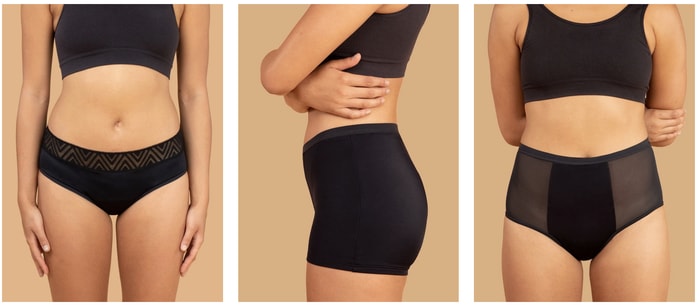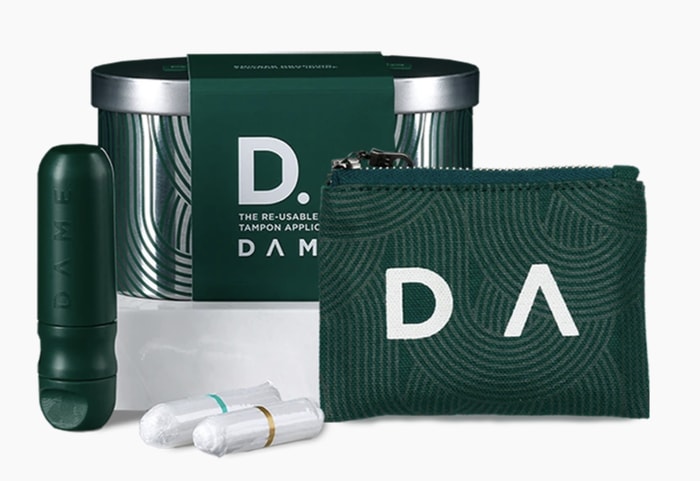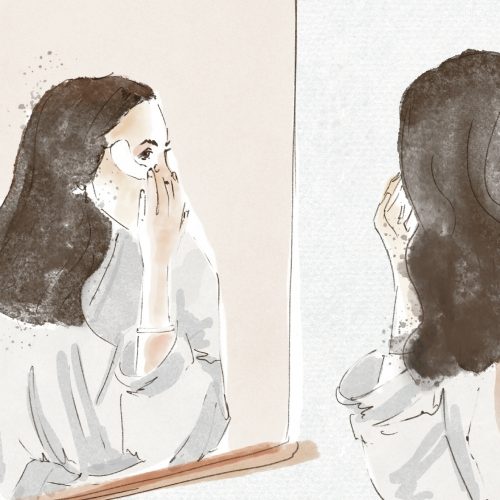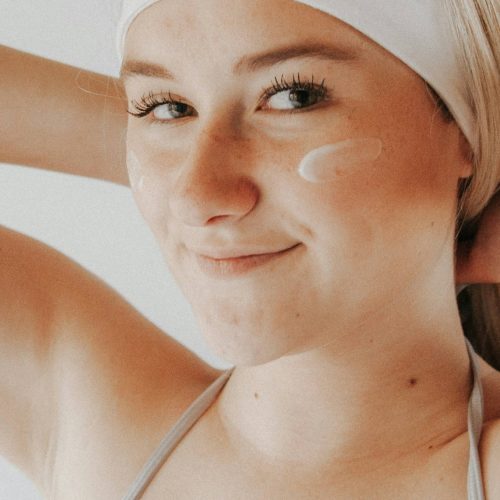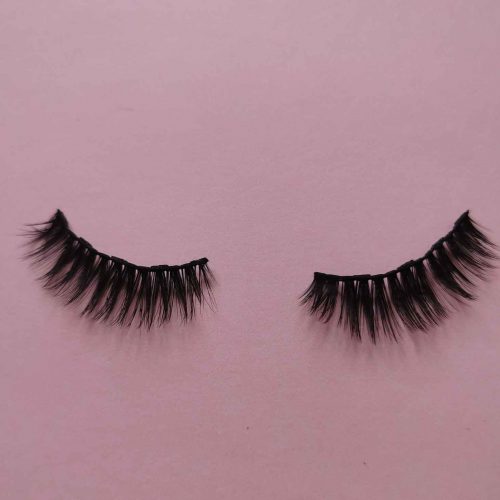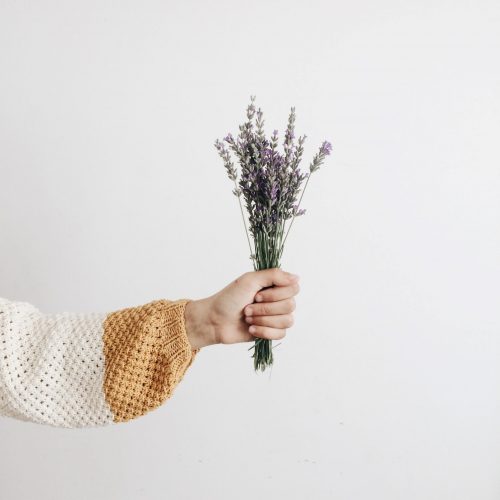Eco-Friendly Menstrual Practices
When you think of periods, green isn’t exactly the first colour that comes to mind. Yet eco-friendly menstrual practices are increasingly on the rise. From Mooncups to period absorbent underwear, biodegradable tampons and more, the feminine hygiene industry is becoming eco conscious; addressing the degrading impact conventional pads and tampons have, not only on the environment, but also on female health.
HOW DO PERIOD PRODUCTS HARM THE ENVIRONMENT?
The lifecycle of a period product is intrinsically unsustainable. The raw material extraction of cotton used to make pads and tampons is extremely water intensive, and has been proven to contribute to water scarcity issues worldwide. Most of the cotton used has not been grown organically, but rather, is saturated with lethal insecticides and pesticides known to corrupt food chains and ecosystems. Many pads additionally contain polyethylene, an adhesive plastic used to stick the pad down onto underwear; causing land, air and water pollution once the pad has been trivially thrown away.
The chemical footprint of tampons is no better, containing a toxic concoction of many ingredients such as chlorine; an environmental pollutant, harmful to organisms living in the soil or in water. Dioxin; a highly toxic chemical of global concern known to persist in the environment for many decades, bio-magnifying and bio-accumulating in ecosystems, and rayon; an artificial fibre made from deforested wood pulp, treated with hazardous chemicals.
After use, period products inevitably find their way back to the ocean where they can reside for hundreds of years. Breaking down into deadly microplastics, choking marine life and turning our once pristine blue ocean waters into a repugnant eyesore of synthetic filth.
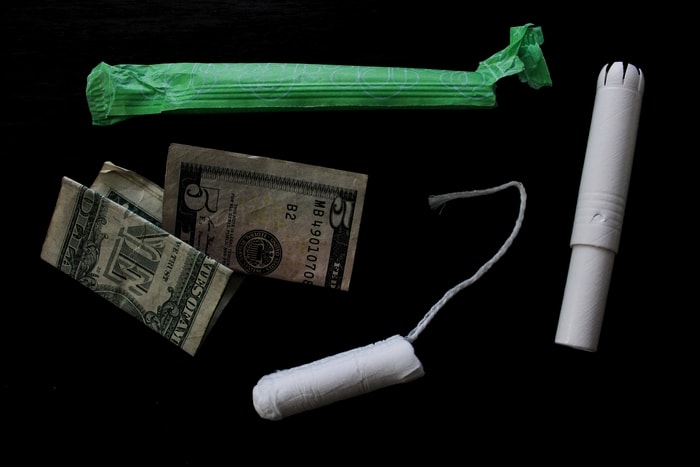
CAN PERIOD PRODUCTS IMPACT HUMAN HEALTH?
Vaginal tissue is very absorbent, Science and Research director Alex Scranton, of Women's Voices For The Earth explains. Lined with permeable mucous membranes designed to protect the body from bacteria, these vaginal membranes are filled with blood vessels which allow any chemical they are exposed to, to be passed into the bloodstream. Thus, the toxic chemical compounds which go into making pads and tampons, can equally be absorbed by your body too.
The dioxin residues found in tampon fibres are additionally carcinogenic, proven to cause abnormal tissue growth, as well as immunal, hormonal and endocrine system disruption. Rebecca Alvandi, co-owner of natural feminine hygiene company Maxim tells in an interview with Bustle, ‘when we pull a tampon outside of our body, these fibres sometimes break off and hang outside our vaginal canal. These fibres can create a breeding ground for bacteria, and that's where Toxic Shock Syndrome can happen.’ Potentially leading to a high temperature, flu like symptoms, dizziness and even death.
For these such reasons, feminine hygiene product safety could become the next serious health issue. Therefore, research and awareness surrounding the risks of pads and tampons is necessary, in order to make the social and environmental dangers of these products more commonly known.
WHAT IS THE FEMININE HYGIENE INDUSTRY DOING TO HELP?
In recent years, growing awareness in regards to our immanent climate crisis has awakened a new wave of eco conscious consumers. Combined with recent scientific knowledge, unveiling the health implications of period products, a new era of eco-friendly menstrual practises has been born.
MENSTRUAL CUP
Popularised in 2002 by Mooncup, the world’s first reusable, medical-grade silicone menstrual cup, these products aim to prevent plastic pollution and minimise waste, without compromising on the functionality, comfort or affordability of the product itself. Each small, flexible, soft funnel shape cup is leak-free and designed to be worn for up to 12 hours; saving the hassle of changing pads and tampons on a regular basis. Generally constructed from organic materials, sustainable menstrual cups are hypoallergenic and free from lataex dyes, perfumes, BPA, phthalates, plastic, bleaches or toxins, making them a naturally gentle and ethical tampon/pad alternative.
PERIOD ABSORBENT UNDERWEAR
Having a period without wearing a pad or tampon sounds like a recipe for disaster, however, rising demand for period absorbent underwear proves such qualms are a thing of the past. With the capacity to hold up to four tampons worth of blood on average, period absorbent underwear draws away wetness and dries fast so your clothes and sheets stay stain free.
Sustainably manufactured to ethical working conditions, leading underwear brand Thinx brings employment and education to marginalised communities across the world, whilst offering products to consumers that are as harmless to women’s health as regular underwear. Committed to using less water and more renewable energy by 2025, Thinx has published an extensive environmental report in their Products Made Better program, outlining their ambition to leave the planet in a better state than they found it.
ORGANIC PADS AND TAMPONS
For those who feel most secure wearing pads or tampons, the use of organic period products should be encouraged. Look out for sustainable certifications such PETA, indicative of the ethical treatment of animals, GOTS; proving the inclusion of organic textile fibres FSC; promoting responsible forestry or the Soil Association; marking products with high animal welfare standards and which exclude artificial substances. This ensures your sanitary wear not only optimises your own physical wellbeing, but the wellbeing of the planet too.
REUNSABLE PADS AND TAMPONS
Switching to Dame, the world’s first reusable tampon applicator, would save between 17,000- 24,000 pieces of single use plastic from entering our ocean in a lifetime, whilst preventing an abundance of greenhouse gases being emitted from the transport and manufacturing process involved. Plastic free, toxin free, hygienic and carbon-neutral, Dame was founded with environmental responsibility in mind. Whilst promising the same level of comfort and convenience as regular tampon use.
Reusable pads such as the super soft, chemical-free Lilypads are designed to be reliable and comfortable no matter how heavy the flow. Saving money on every pad and tampon you would otherwise have to buy; reusable pads once popped in the washing machine are fresh to wear again, good as new.

